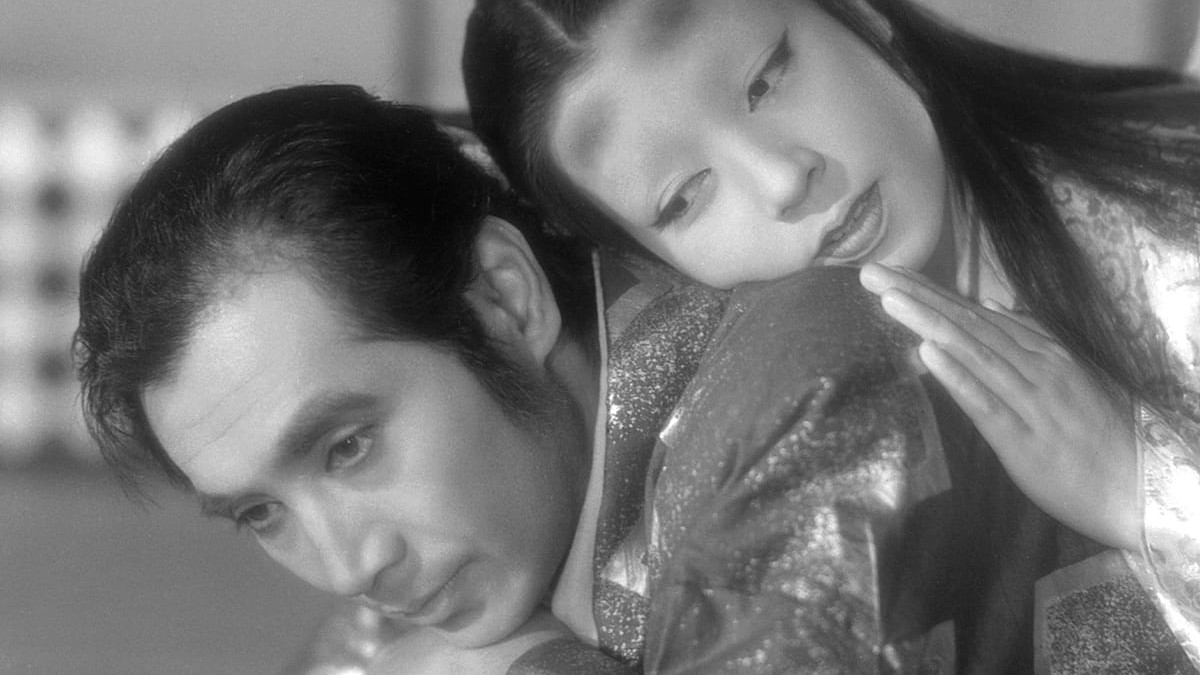UGETSU

#de Um Habgier geht es im zweiten Film im „SOS Summer of Sin: 7 Filme zu den 7 Todsünden“.
Kenji Mizoguchis Meisterwerk reichert den Historienfilm mit Folk-Horror-Elementen an und liefert Bilder und Szenen, die man
nicht so schnell vergisst.
#en Greed is the subject of the second film in our SOS Summer of Sin: 7 Films on the 7 Deadly Sins. Kenji Mizoguchi's masterpiece enriches the historical film with folk horror elements and delivers images and scenes that you won't forget.
presented by TIL MIDNIGHT MOVIES
#en Greed is the subject of the second film in our SOS Summer of Sin: 7 Films on the 7 Deadly Sins. Kenji Mizoguchi's masterpiece enriches the historical film with folk horror elements and delivers images and scenes that you won't forget.
presented by TIL MIDNIGHT MOVIES
#de Im bürgerkriegsgeprägten Japan beschließen zwei Männer aus ärmeren
Verhältnissen, für ihre Familien Gewinn aus dem Krieg zu lukrieren. Der eine verkauft seine wunderschönen Töpfereien, der
andere will als Samurai zu Reichtum gelangen. Blind vor Gier vergessen sie schnell ihre ursprüngliche Motivation und die daheimgelassenen
Familien. So blind, da wird doch glatt ein gefährlicher Geist mit einer wohlhabenden Frau verwechselt. Obwohl sich UGETSU
in diversen Listen der besten Filme aller Zeiten findet, wird ihm oft Konservativismus und Patriotismus vorgeworfen. Auf der
anderen Seite hat sich wohl kaum ein männlicher Regisseur aus dieser Zeit so intensiv mit der differenzierten Darstellung
von Misogynie im Patriarchat beschäftigt. Ganz abgesehen davon, dass man es mit einem wahren Meister der Bildkomposition zu
tun hat, die im Falle von UGETSU von einem unheimlichen und zuweilen experimentellen Score begleitet wird.
#en In civil war-ridden Japan, two men from poor backgrounds decide to make a profit from the war for their families. One sells his beautiful pottery, the other wants to become rich as a samurai. Blinded by greed, they quickly forget their original motivation and the families they left at home. So blindly, a dangerous ghost is mistaken for a wealthy woman. Although UGETSU can be found in various lists of the best films of all time, it is often accused of conservatism and patriotism. On the other hand, hardly any male director from this period has dealt so intensively with the nuanced portrayal of misogyny in patriarchy. Not to mention that one is dealing with a true master of image composition, which in the case of UGETSU is accompanied by an eerie and experimental score.
#en In civil war-ridden Japan, two men from poor backgrounds decide to make a profit from the war for their families. One sells his beautiful pottery, the other wants to become rich as a samurai. Blinded by greed, they quickly forget their original motivation and the families they left at home. So blindly, a dangerous ghost is mistaken for a wealthy woman. Although UGETSU can be found in various lists of the best films of all time, it is often accused of conservatism and patriotism. On the other hand, hardly any male director from this period has dealt so intensively with the nuanced portrayal of misogyny in patriarchy. Not to mention that one is dealing with a true master of image composition, which in the case of UGETSU is accompanied by an eerie and experimental score.






